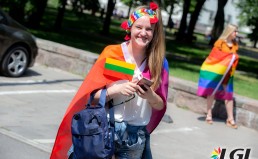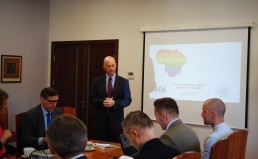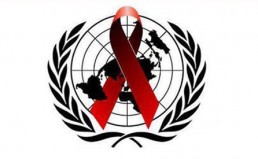The Universal Periodic Review (UPR) is a unique human right mechanism under which the human rights situation of all United Nantions Member States is reviewed every 5 years. 42 States are reviewed each year. Consideration for Lithuania is scheduled on Wednesday, 26 January 2022. LGL contributed to the alternative report joint submission of the Human Rights Organizations Coalition
Tag Archive: United Nations

Things have been going backwards for LGBTI Indonesians since last year. Indonesia faced up to intense scrutiny from its fellow United Nations member states. This week Indonesia underwent its 3rd cycle of the Universal Periodic Review (UPR). The UPR is a unique process which involves a periodic review of the human rights records of all 193 UN

On November 2nd, 2016 the Government of the Republic of Lithuania took part in the 26th session of the United Nations Universal Periodic Review, at which time it presented its report on the human rights situation in the country and responded to other member states’ questions and recommendations. In the 26th session, Lithuania received as

The United Nations has voted to keep an independent expert on sexual orientation and gender identity. The vote which took place on Monday, November 21, saw a number of African countries challenge the validity of the role and attempted to have it removed. However, an amendment put forward by a number of Latin American countries

With the aim of exploring further opportunities in raising international awareness on LGBT* human rights situation in Lithuania within the framework of the second UPR cycle, on September 14th, 2016 the National LGBT* Rights Organization LGL invited the representatives of various diplomatic representations residing in Lithuania to take part in a meeting, hosted by the

Last week the United Nations convened its first meeting to address the issue of human rights violations against people with ambiguous genitalia, also known as intersex. The U.N. Office of the High Commissioner for Human Rights meeting, held in Geneva, builds off a 2013 report by the U.N.’s Special Rapporteur on Torture calling on the
On the 3d of September, 2015 the national LGBT* rights organization LGL received an official letter from the United Nations, International Organizations and Human Rights Department of the Ministry of Foreign Affairs of the Republic of Lithuania, informing about Lithuania’s position in the U.N. Security Council meeting on the 24th of August, 2015. In response

The UN’s 2030 Agenda for Sustainable Development for member states will contain no language that could be interpreted as shielding the rights of LGBTI people in order to placate developing nations The sustainable development goals set for United Nations members to the year 2030 will not contain any reference to the rights of LGBTI people

U.N. Secretary-General Ban Ki-moon reaffirmed his opposition to laws that criminalize homosexuality on January 12, 2015. “I staunchly oppose the criminalization of homosexuality,” said Ban during an event in the Indian capital of New Delhi that marked the 70th anniversary of the U.N.’s founding. “I speak out because laws criminalizing consensual, adult same-sex relationships violate

The United Nations programme on HIV and AIDS (UNAIDS) has announced a plan to “fast track” approach to tackling the AIDS epidemic with a view to ending it by 2030. The latest report from UNAIDS titled ‘Fast-Track: ending the AIDS epidemic by 2030′, outlines a plan to avert 28 million new HIV infections and 21 million

